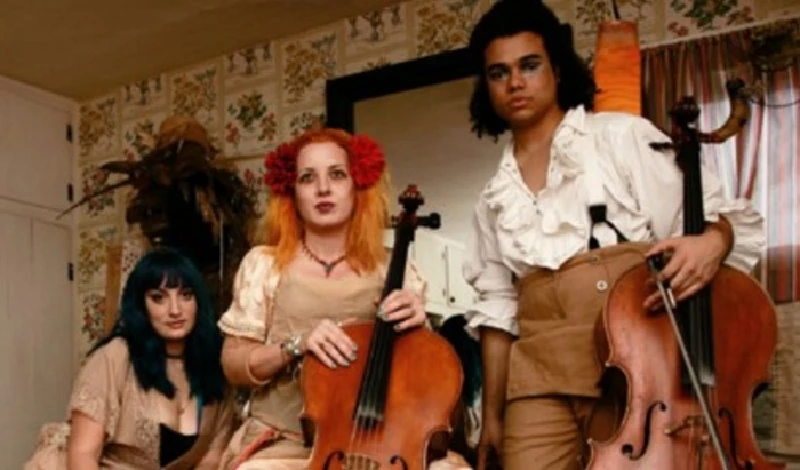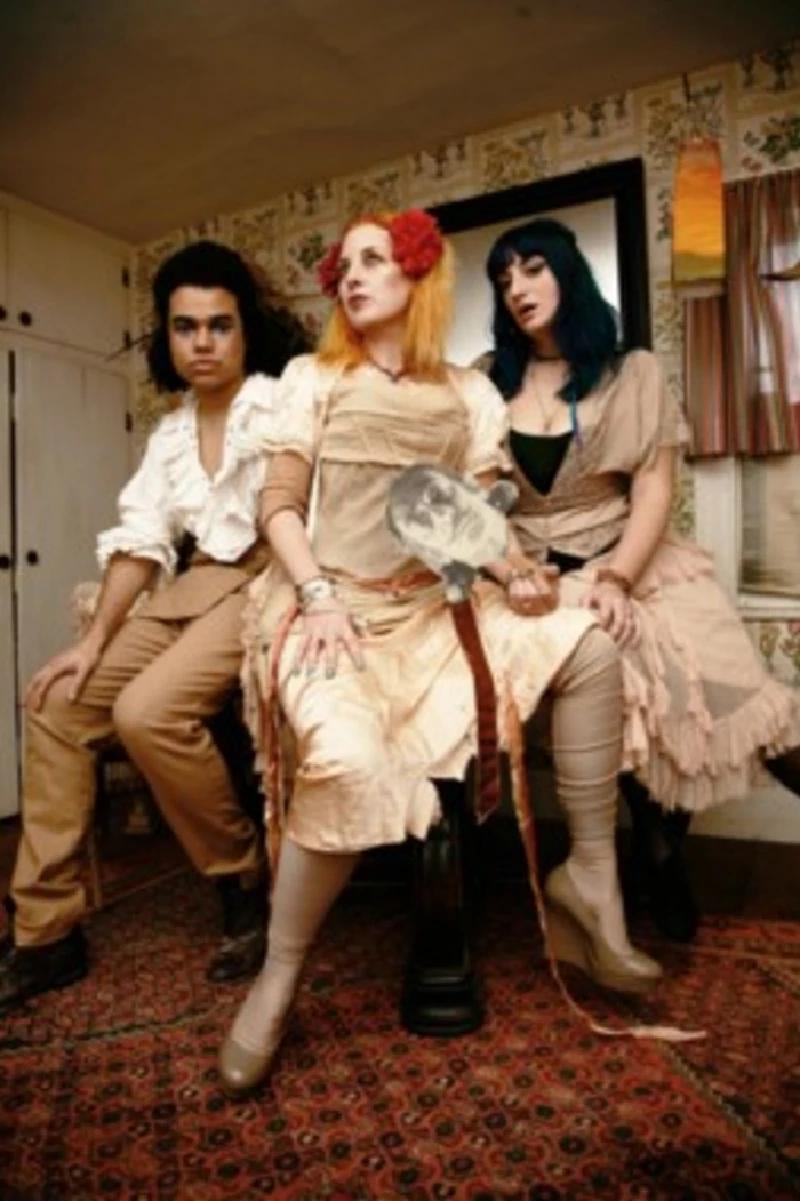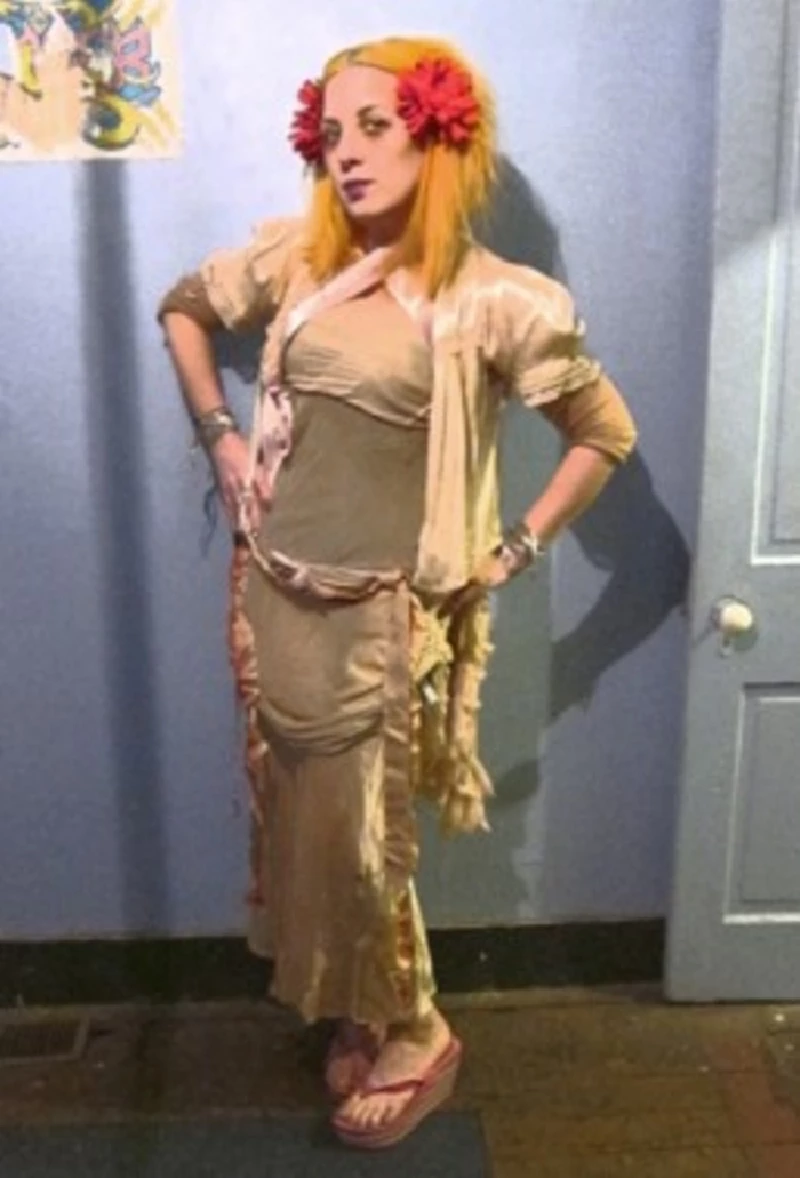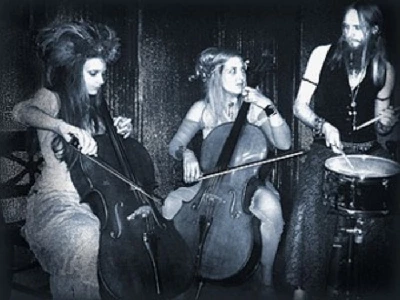Rasputina - Interview
by Lisa Torem
published: 18 / 5 / 2011

intro
Lisa Torem speaks to Melora Creagar, the founder of cello-driven New York-based band Rasputina, about her band and her fascination with the Victorian era
Melora Creager leaves no stone unturned when it comes to crafting quirky songs. Her cello-driven, New-York based band, Rasputina, features compositions which are not only drenched in the singers’ unorthodox phrasings and gothic sensibilities, but are often inspired by obscure (‘Calico Indians’ details the Anti-rent wars of 1844) and infamous historical events and public figures. ‘Yellow Fever’, to that end, refers to the epidemic in New Orleans in 1853. ‘Child Soldier Rebellion’ was drawn from the Lord’s Resistance Army in Uganda. ‘Rose K.’ was based on the Kennedy matriarch, and even the reclusive Howard Hughes was considered fair fodder. One of her first undertakings, the graphic EP ‘Transylvanian Regurgitations’ (1997) was remixed by Marilyn Manson, with whom the band had toured. ‘How We Quit the Forest’, their 1998 second album, found them further defining their distorted outlook. To that recording, Chris Vrenna (Nine Inch Nails) played electronic drums and added other ambient effects. In 2010, film director, Dawn Miceli captured the band’s vibrant performances and passion for a former time in the documentary ‘Under the Corset.’ Miceli, who, through this project, became an even more celebrated fan and signed on to play drums for Rasputina’s subsequent touring commitments. Their sixth album, 2010’s ‘Sister Kinderhook’, features Melissa Bell on djembe and Daniell DeJesus on vocals. Creager acted as producer, and besides singing and playing her signature cello, chimed in with banjo and harpsichord. ‘Great American Gingerbread’, a compilation album which came out earlier this year , features rareties from the band’s archives. Melora Creager disclosed how Rasputina has successfully moved forward despite three label changes and numerous band member departures. PB: You grew up in Kansas, as part of a musical family, and then landed in New York. Were you forced to practice the cello, like so many children, or did you happily discover you enjoyed creating music on your own? MC: Both, simultaneously. I was forced to practice, but once I sat down to do so I would lose myself in music. I always wrote songs, since I started music lessons at five-years old. PB: When Nirvana toured to support ‘In Utero’ in ’1993, you toured with them, playing cello, and they taught you “lessons in avoidance of immense fame.” What did you mean by that? MC: I saw, up-close, how success killed an artistic soul. PB: You’ve long held a fascination for the Victorian era. What appeals to you about that time? MC: The intense level of detail and decoration that there was when things were more hand-made. PB: When she had finished the film documentary ‘Under the Corset.’ Miceli then toured as drummer with Rasputina in February of this year. How did Miceli feel once she was on the other side of the camera? MC: Dawn is a huge Rasputina fan, so it was a real dream-come-true for her. She says her dreams are fulfilled and she has no more. PB: You produced your first two albums, ‘Thanks for the Ether’ and ‘How We Quit the Forest’, for Columbia Records. Then you switched over to the indie labels, Instinct, for your next two albums, 2002’s ‘Cabin Fever’ and 2004’s ‘Frustration Plantation’, and then finally Filthy Bonnet for your latest three albums, 2007’s ‘Oh Perilous World’, and ‘Sister Kinderhook’ and ‘Great American Gingerbread’. Why the break? MC: My two record deal with Columbia ended. I was with Instinct until they folded. Then I made my own label, Filthy Bonnet. PB: You demonstrate a penchant for writing about historical events; some of which are quite traumatic. For example, ‘My Little Shirtwaist Fire’ on ‘Thanks for the Ether’ was based on an actual factory fire which took place in New York in 1911 and in which some young girls actually leapt to their death because there were no safety precautions for workers in those days. Another song, on that album, ‘The Donner Party’ is about American pioneers who travel to California and resort to cannibalism. Why do such dark events inspire you to create music? MC: I used to be uncomfortable writing about happy things, because I didn't feel so happy myself. I need to be honest, even if I'm fantasizing. I wanted to put myself in these extreme situations to try to understand them emotionally. PB: Do you, like many classical composers, assign personalities to the instrumentation used? MC: I don't know what this means, so the answer must be 'no'. PB: Your latest album, ‘Great American Gingerbread: Rasputina Rareties and Neglected Items’ features a Q & A with audience members at a live concert, solo film scores and demos. What did you learn about yourself as you took stock of your 20 year-old career? What would new fans find most meaningful? MC: I sure have learned a lot about recording the cello and writing songs. I think the embryonic, unfinished song demos are pretty interesting as they show how I develop ideas. PB:You spent time learning photography and you produce artwork for the band. But, would you consider yourself a person who experiences the world visually or sonically? MC: Visually. I'm more inspired by visuals and music is a soundtrack to me. Even if my eyes are closed, music makes pictures. PB: There have been a number of line-up changes in Rasputina. Do you find that your vision changes when one musician leaves and another joins in? MC: My Rasputina vision doesn't change, but our live repertoire changes with the line-up, based on their strengths. PB: Who are your muses presently and since the band formed? MC: Alexei Romanov (1995), Marilyn Manson (1997), Brian Eno (2000), Leadbelly (2004), BBC (2007), Emily Dickinson (2010), Robert Johnson (2011). PB: What sequence or process do you follow when writing a song, and which ones get requested the most during live performances? MC: I tend to write music and lyrics separately, then put them together later, like a puzzle. I have so much music- people ask for all different things. Everyone has a different favourite song. PB: What’s most intriguing about your past colleagues Sarah Bowman and Jonathon Tebeest? Can you please describe each one using no more than five words? MC: I haven't played with these folks for years. Are you sure you want to hear about them? PB: Let’s talk more about your current line up. MC: Daniel DeJesus in five words: Lovely, multi-talented boy-man. Special friend. PB: Before you go, please finish this sentence for me: “Truth is stranger than…….” MC: Truth is stranger than gossip columns. PB: Thank you.
Picture Gallery:-


live reviews |
|
Windmill, Brixton, 28/1/2008 |

|
| New York art rock trio Rasputina consist of two cellists and a percussionist and have released six albums to date. At their first ever show in Britain at London's Brixton Windmill, Anthony Dhanendaran finds their eccentric and mystical music an absolutely unique experience |
most viewed articles
current edition
Carl Ewens - David Bowie 1964 to 1982 On Track: Every Album, Every SongBathers - Photoscapes 2
John McKay - Interview
Editorial - July 2025
Billie Eilish - O2 Arena, London, 10/7/2025
Simian Life - Interview
the black watch - Interview
Chris Wade - Interview
Cathode Ray - Interview
Sir Tim Rice - Interview
previous editions
Trudie Myerscough-Harris - InterviewPixies - Ten Songs That Made Me Love...
Boomtown Rats - Ten Songs That Made Me Love....
Heavenly - P.U.N.K. Girl EP
Fall - Hex Enduction Hour
Peter Paul and Mary - Interview with Peter Yarrow
Sam Brown - Interview Part 2
And Also The Trees - Eventim Apollo, London, 21/12/2014.
Place to Bury Strangers - Interview
Miscellaneous - Charity Appeal
most viewed reviews
current edition
Sick Man of Europe - The Sick Man of EuropeAmy Macdonald - Is This What You've Been Waiting For?
Phew, Erika Kobayashi,, Dieter Moebius - Radium Girls
Alice Cooper - The Revenge of Alice Cooper
Blueboy - 2
Lucy Spraggan - Other Sides of the Moon
Cynthia Erivo - I Forgive You
Bush - I Beat Loneliness
Davey Woodward - Mumbo in the Jumbo
Philip Jeays - Victoria
Pennyblackmusic Regular Contributors
Adrian Janes
Amanda J. Window
Andrew Twambley
Anthony Dhanendran
Benjamin Howarth
Cila Warncke
Daniel Cressey
Darren Aston
Dastardly
Dave Goodwin
Denzil Watson
Dominic B. Simpson
Eoghan Lyng
Fiona Hutchings
Harry Sherriff
Helen Tipping
Jamie Rowland
John Clarkson
Julie Cruickshank
Kimberly Bright
Lisa Torem
Maarten Schiethart